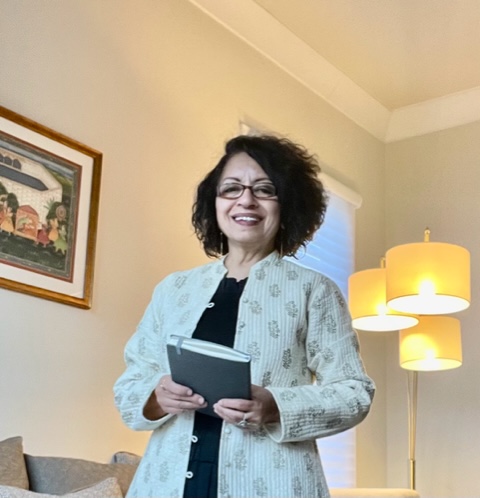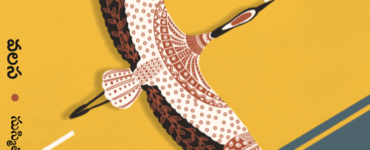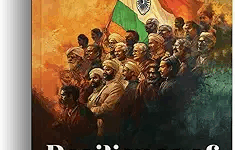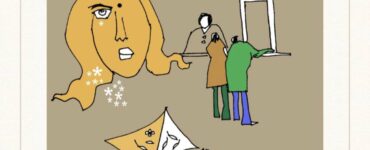When I was approached to write this editorial, I dilly-dallied, telling myself, “I am going through a writer’s block. What do I write about?”
In all candor, I must accept that the doubts nibbling away at me were about writing disappointingly. That, in fact, is my greatest fear as a writer. What if my readers are disenchanted with what I write? What if I don’t write properly? What exactly is proper writing? What if folks don’t love my characters?” What if? What if? Of course, I know that in writing, as in life, we can’t satisfy everybody. However, that doesn’t prevent our insecure minds and hearts from doubting big time. Right? Perhaps Shakespeare will not mind if, instead of “to be or not to be,” we make “what if?” the center of our crisis.
To emerge from this crisis, a hearty, regular dose of magical realism is what we all need in the beneficial practice of our daily lives. Michael Gates Gill talks in his 2007 autobiography, How Starbucks Saved My Life, about being laid off from a six-figure job in New York City. Grudgingly, when at his lowest financial and psychological point, he becomes a barista at the same Starbucks where he used to pick up his lattes, and magic entails altering his life forever.
My writings try to invoke a deep sense of this invincible yet plausible magic, of surrealism, or of fantasy. All these are considered separate literary and artistic techniques. However, to me, these are interchangeable because, in the existence of routine, I find all of these, not mundanity. I thrive on realist mysticism! In that very humdrum of actuality, I find a special spark that keeps me spirited, uplifted, cheerful, and thankful.
Human raison d’être is called into question repeatedly because restless humans are not able to see the enchantment in quotidian realism. Waking up, realizing all is still good, getting ready for the new day, putting on the water kettle, taking that first sip of hot tea while watching vapors rise and misting the face, while watching a lingering moon in the sky, or spending time with loved ones and smiling because they smile and aching to get home and hug them after a simple day at work, or having electricity, drinking water, hot water, covered flushable toilets, food, jobs, not living in war zones, being alive and breathing, being able to sleep at night are just a handful of elements of magical realism in our regular existence that millions do not register as charmed pixie dust.
Many humans don’t recognize and appreciate what they have and instead search for what they don’t or cannot have. I am not implying we don’t dream or strive for things, au contraire, but it is critical not to make that the center of our happiness. Happiness is subjective as it is. A bird in hand is better than two in the bush. And the grass generally appears greener on the other side. Remember the popular Christmas movie, It’s a wonderful life?[1]
I’ve built my life on the small things, on the small details that keep me sane. There’s truly The God Of Small Things if we wish to take heed as such. That, for me, is magical realism around which I weave my dream-like existence, which to some might appear drab or predictable. However, in that banal, I create moments of bliss and satisfaction with all that God has given to me. I am like the merchant of dreams in the Hindi movie Sapno ka Saudagar (1968), selling dreams to myself (and sometimes to others who are willing!) by accepting the beauty and wisdom of the normal. The harsh reality of sudden time twists is what needs to be our guide. Who can forget Anne Frank?
Also, who cannot give an agreeable nod to The Alchemist with its intrinsic dream-like quality, the reachable possibility of aspirations, the karmic corporeality of our struggles, and the potentiality of overcoming hurdles, if we so believe “I have inside me the winds, the desserts, the oceans, the stars…”[2] And during global anguish, which is now almost an everyday matter and increasingly draws a dystopian existence nearer, dreams, hope, and possibilities are what we are left with.
For me, since childhood, that has been the core of my character building, decision-making, dealing with setbacks, and moving on. I would pray and still do, not for winning lotteries, for huge book contracts, for amazing jobs, or for the greatest love. Instead, I pray for a normal life with no horrible things coming to me or to my loved ones. I pray for grit, determination, and hard work to bolster my capacity for fulfilling my dreams.
The term magical realism was coined by Franz Roh in 1925 to formulate a fresh artistic form that wandered from the stringent structures of realism. However, the term became popular as an artistic movement only in the 1950s, when South American and Caribbean writers such as Jose Martí and Ruben Darío popularized it in their writings. The purpose is to find and showcase the presence of the extraordinary and inconceivable in everyday life. Just like Oliver Twist, a destitute orphan who remains optimistic and unflinchingly resolute to alter his circumstances despite the societal cards stacked against him.
Magical realism can also be employed to reconstruct history or convey a message. By telling the story from the perspective of the ghost, Beloved, in the novel by its namesake, Toni Morrison allows the readers to feel and learn about the collective historical pain of the black community. Or, say, British writer Neil Gaiman, in his novel The Ocean at the End of the Lane, narrates a simple hyper-realist story of a man returning to his native Sussex, England, only to find himself transported into layers of mysterious, fairy-like childhood memories.
I’d like to conclude by presenting a debatable question. Why do some folks, when they call or meet, ask, “So, what’s new?” I find that question a bit odd. And I am generally at a loss for words. Does one have to have something new going on in one’s life all the time? What does “new” signify to those who ask the question? Does newness imply that our lives are not boring or routine? Is new, consequently good? Perhaps it’s only a conversation opener, such as “What’s up?” Or is it a poetic hypophora literary skill that leaves us perplexed, pondering, and intrigued? Socrates might be chuckling in his grave.
In the wake of the pandemic, wars in different parts of the world, murders, rapes, poverty, hunger, thirst, drought, tsunamis, earthquakes, tornadoes, and environmental degradation, wouldn’t it be magical realism for us to remember that normalcy can be the central theme? Situations and things can change in a second. So, then, isn’t nothing new, the best new?
Here’s wishing everyone a dose of magical realism in their daily lives!
[1] Kusiak, L. (2021, December 18). It’s a wonderful life’s true story origins explained. ScreenRant. https://screenrant.com/its-wonderful-life-bedford-falls-antonio-varacalli/
[2] Paulo Coelho, The Alchemist, p. 146









Beautifully inscribed article about magical realism .Best wishes to Ms. Anita Nahal
Thank you so much, Promila for stopping by to read and your kind words 🙏🏼